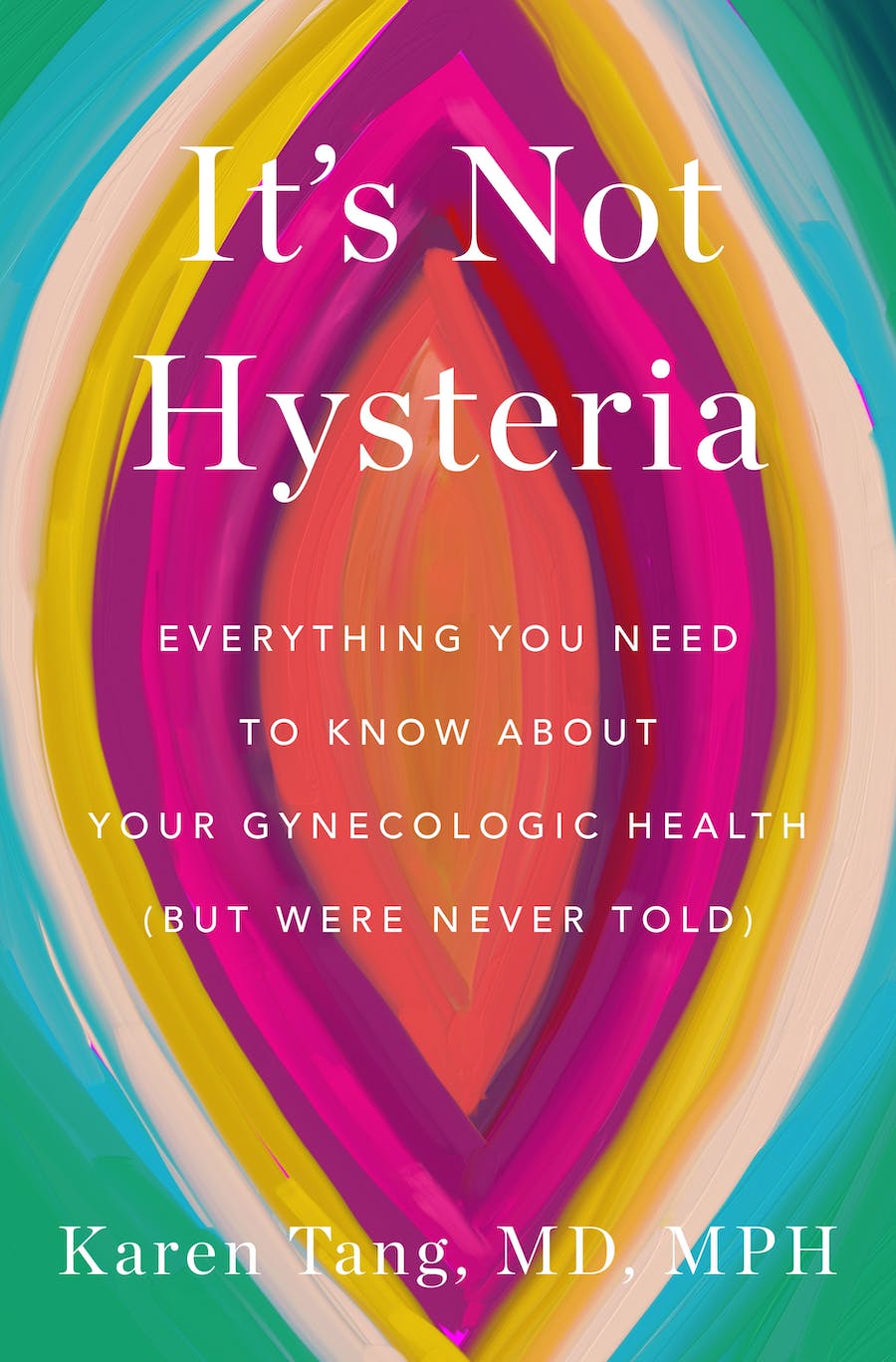
It's Not Hysteria: Everything You Need to Know About Your Reproductive Health
Karen Tang
About the Author

Karen Tang
Questions & Answers
The "hysteria" diagnosis, rooted in ancient Greek beliefs, historically linked women's reproductive organs to their mental and emotional health. This concept persisted for centuries, leading to treatments like clitoridectomy and oophorectomy. The diagnosis was used to justify mistreatment, including forced bed rest and isolation, and was often applied to women experiencing unexplained symptoms. This historical context has had a lasting impact on women's health and medical treatment, as it contributed to the stigmatization of women's reproductive and mental health issues. It also influenced the medical community's approach to diagnosing and treating conditions like endometriosis and pelvic pain, often leading to misdiagnosis and inadequate care. This legacy of misunderstanding and mistreatment continues to influence modern healthcare practices and the perception of women's health issues.
The book advocates for a more inclusive and accurate understanding of gynecological health by emphasizing the importance of gender-inclusive language and acknowledging the experiences of marginalized groups. It highlights the challenges faced by transgender, nonbinary, and intersex individuals in accessing healthcare and educates readers on gender diversity and affirming care. The book also addresses the historical stigmatization of women's health issues and advocates for increased research, funding, and public education on gynecological conditions. It encourages healthcare providers to use inclusive language and to be allies to the LGBTQIA+ community, ensuring that all individuals feel seen and included in discussions about reproductive health.
The book discusses various gynecological conditions, including:
- Fibroids: Benign tumors of the uterine muscle, causing symptoms like severe pain, heavy bleeding, and infertility.
- Endometriosis and Adenomyosis: Conditions where uterine lining grows outside the uterus, leading to chronic pain, bowel and bladder issues.
- Polycystic Ovarian Syndrome (PCOS): Hormonal imbalance causing irregular periods, fertility issues, and metabolic problems.
- Urinary Incontinence: Involuntary loss of urine, affecting daily activities and social interactions.
- Sexual Dysfunction: Issues like low libido, arousal problems, and orgasmic disorders, impacting intimate relationships.
- Vulvovaginal Conditions: Infections, skin conditions, and pain syndromes affecting the vulva and vagina.
- Premenstrual Syndrome (PMS) and Premenstrual Dysphoric Disorder (PMDD): Emotional and physical symptoms before or during the menstrual cycle.
- Perimenopause and Menopause: Hormonal changes leading to hot flashes, mood swings, and other symptoms.
- Infertility: Difficulty in getting pregnant, causing emotional and financial stress.
- Miscarriage: Loss of pregnancy before 20 weeks, impacting mental health.
- Gender Diversity: Discusses the health needs of transgender and nonbinary individuals.
- Intersex: Conditions where a person is born with reproductive or sexual anatomy that doesn't fit typical definitions of male or female.
These conditions can significantly impact individuals' lives, causing pain, discomfort, emotional distress, and affecting their ability to work, socialize, and maintain relationships. The book emphasizes the importance of awareness, education, and proper medical care for these often overlooked issues.
To take control of reproductive health, individuals should:
-
Educate Themselves: Understand basic anatomy, the menstrual cycle, and common gynecological issues. Resources like books, reputable websites, and support groups can be helpful.
-
Keep a Symptom Log: Document periods, pain, bleeding, and other symptoms to identify patterns and communicate effectively with healthcare providers.
-
Seek Professional Advice: Consult with healthcare providers for diagnosis and treatment. Don't hesitate to get a second opinion if needed.
-
Advocate for Yourself: Clearly communicate concerns and treatment preferences. If uncomfortable with a recommendation, ask for alternatives.
-
Stay Informed: Understand the risks and benefits of treatments, including medications and surgeries.
-
Access Support: Join support groups or seek counseling for emotional support.
Navigating the healthcare system effectively involves:
-
Research Providers: Choose healthcare providers with experience in reproductive health issues.
-
Prepare for Appointments: Bring symptom logs, questions, and a list of concerns.
-
Insurance Awareness: Understand insurance coverage and options for care.
-
Insurance Advocacy: If coverage is an issue, explore options like telemedicine or community clinics.
-
Insurance Reimbursement: Be aware of gender inequalities in insurance reimbursement for gynecological procedures.
The book "It's Not Hysteria" aims to revolutionize reproductive health by addressing the lack of information and awareness surrounding gynecological issues. It challenges the stigma associated with these topics, such as periods, sexual health, and fertility, by providing comprehensive information on common conditions like fibroids, endometriosis, and PCOS. The book empowers readers by offering self-assessment tools, communication strategies with healthcare providers, and treatment options. It also advocates for gender-inclusive language and acknowledges the experiences of transgender and nonbinary individuals. By promoting education and informed decision-making, the book seeks to create a more supportive and knowledgeable society regarding reproductive health.